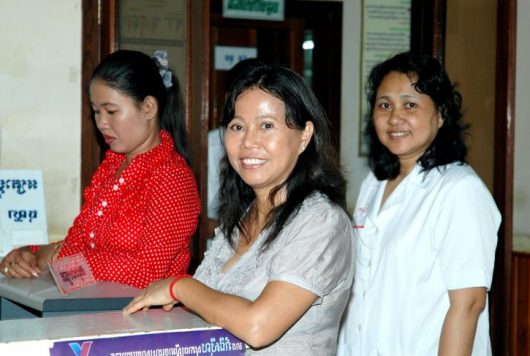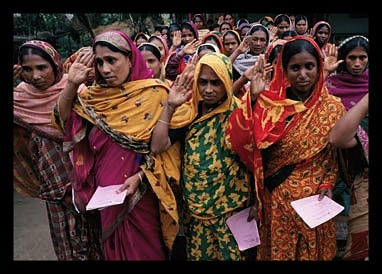
While Cambodia is classified as a democratic nation, the country still struggles to combat human rights violations and gender inequality. The UN has pressured the Cambodian government to eliminate corruption, especially regarding women’s rights and sex trafficking. Government officials have taken steps to move forward in this process, but human rights violations have been far from eradicated. The fight for women’s rights in Cambodia is particularly difficult and securing gender equality faces substantial barriers.
While women may have the same rights as men under the law, the implementation of those rights is entirely inadequate. Culturally, many Cambodians view women as secondary human beings, as shown by the famous saying, “men are gold; women are cloth.” This cultural norm discourages women from being public participants in economic and political processes.
Cambodian women face significant challenges in pursuing jobs outside the home. Most of the opportunities readily available to them are in dangerous or inconsistent conditions, and women are also paid significantly less than men. In high-profit markets, men comprise almost all leadership positions.
Education for women in Cambodia can also be tricky, as families are not legally required to send their children to school, and if they do not have much money the boys will typically receive an education first. Child marriage also creates problems for young girls getting an education, as they are incredibly unlikely to return to school after becoming a bride.
The imbalance of social power between men and women can quickly turn into something not only unfair, but dangerous. Violence against women is common in Cambodia, and 20 percent of women over 15 have encountered some form of physical abuse from a man. Acts of sexual violence, including rape, also plagues Cambodia. The government does a terrible job of holding perpetrators of these crimes accountable, making equal rights for women in Cambodia less tangible.
Sex trafficking, often a result of living in deep poverty, is a huge problem in Cambodia. Women and children are particularly vulnerable, and many are sold by members of their own family. Phnom Penh, the capital of Cambodia, is the home base of many sex trafficking rings.
While women’s rights in Cambodia are not ideal, many organizations are working towards gender equality. The government has adopted several policies that they hope will lead to a crackdown on sex trafficking. Action Aid – an organization that works to promote the lives of the oppressed – has a plan to increase female participation in politics and elevate the quality of women’s rights in Cambodia by 2018.
Women in Cambodia are living in harsh conditions and have yet to achieve gender equality in public or private spheres. While the struggle for equal rights is far from over, the spirit of change is working in the country. Through the efforts of the government and other organizations such as Action Aid, support for women’s rights in Cambodia should increase, and with it, gender equality should start to improve.
– Julia Mccartney
Photo: Google
 Physical or sexual violence against women is causing a global health problem of “epidemic proportions,” according to a new study released by the World Health Organization on June 20.
Physical or sexual violence against women is causing a global health problem of “epidemic proportions,” according to a new study released by the World Health Organization on June 20.